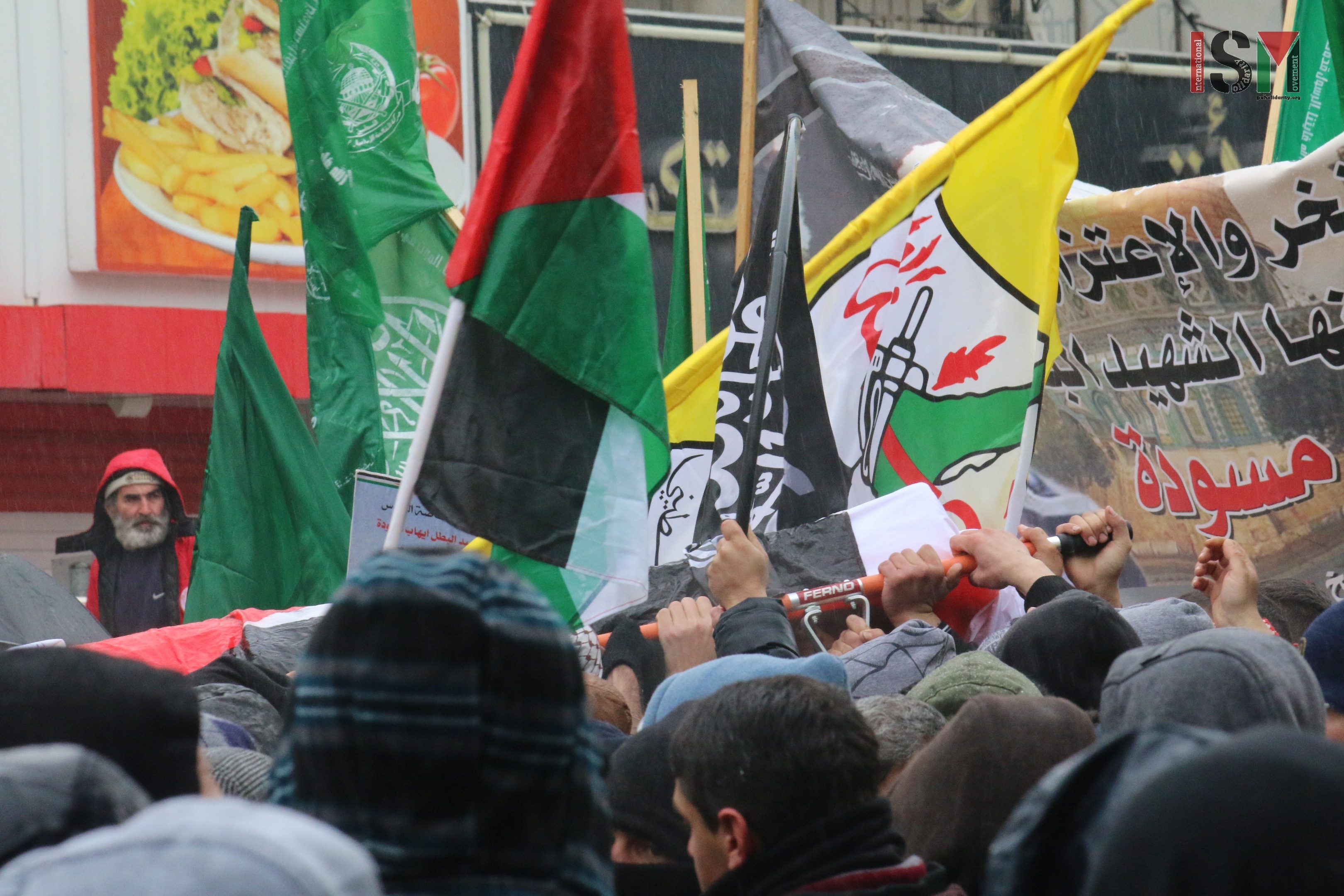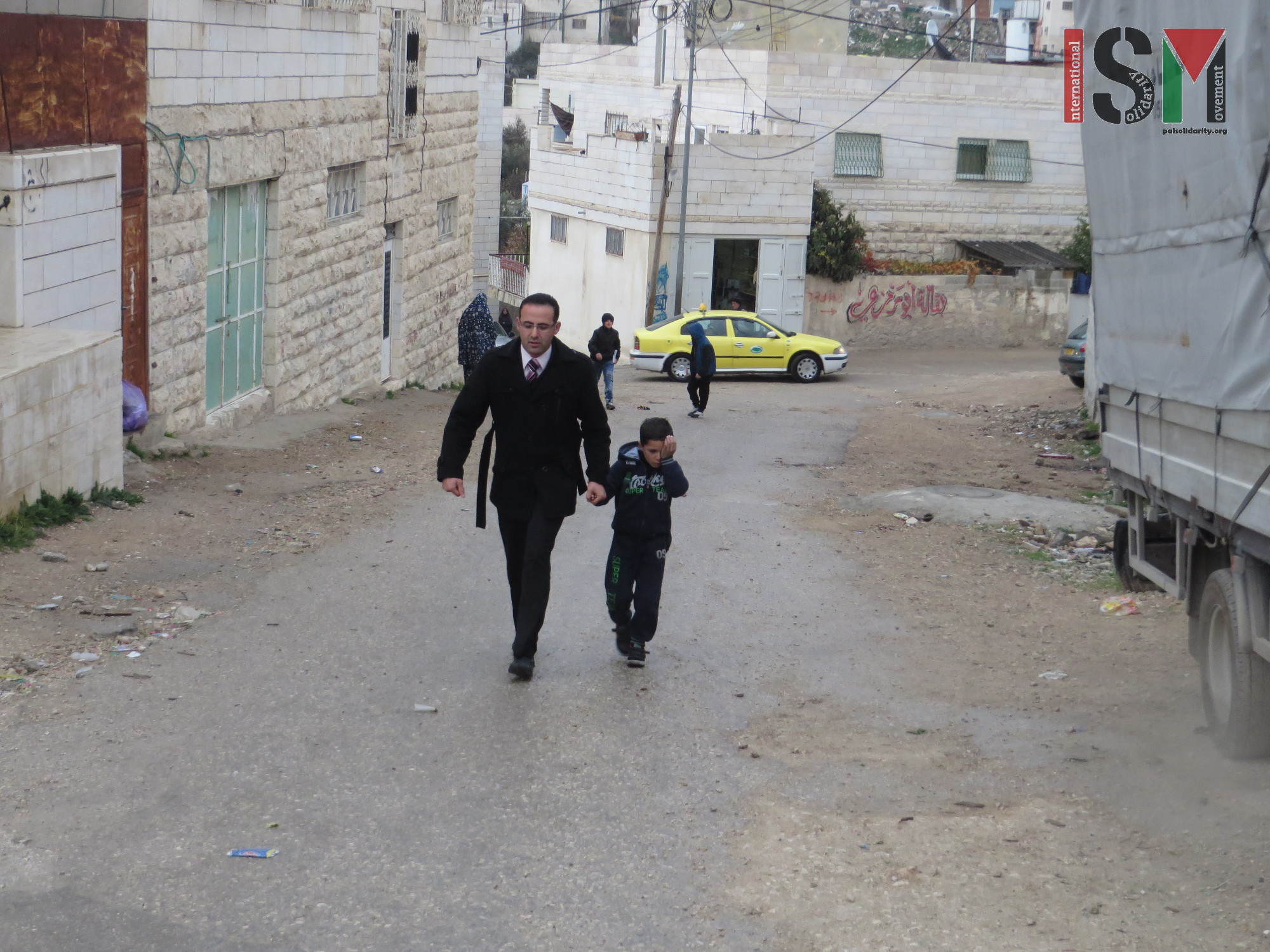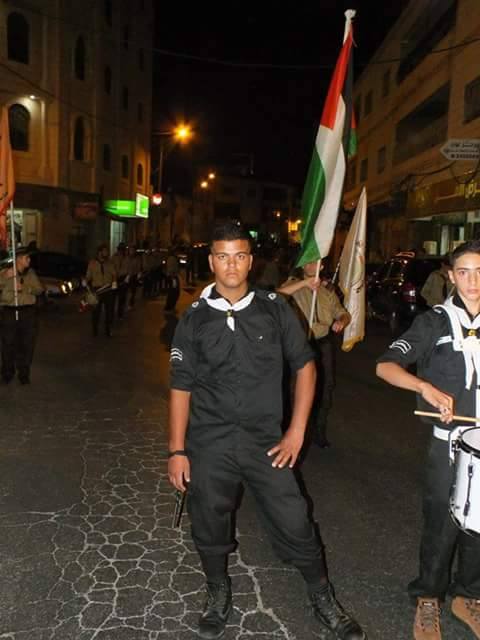-
14 Palestinians finally laid to rest in occupied al-Khalil
2nd January, 2016 | International Solidarity Movement, al-Khalil team | al-Khalil, occupied Palestine On the 2nd of January 2016, thousands attended the funeral of 14 martyrs in occupied al-Khalil (Hebron). A demonstration following the funeral, against the continued killing of Palestinians with impunity by the Israeli military and Zionist settlers, was attacked by Israeli forces. The new year in the […]
-
A frightening walk to school in occupied al-Khalil (Hebron)
2nd January, 2016 | International Solidarity Movement, al Khalil team | Al Khalil, occupied Palestine On 30th December 2015, an aggressive Israeli settler and Israeli forces yet again intimidated and harassed Palestinian schoolboys in occupied al-Khalil (Hebron). As Palestinian schoolchildren were walking to school for their end of the year exam, infamous settler Ofer drove past […]
-
URGENT Update: Help Hamzeh start 2016 with his family!
30th November 2015 | International Solidarity Movement | Ramallah, occupied Palestine Hamzeh’s family has managed to raise 1880 shekels! This is over half of the amount needed so that Hamzeh can come home in seven days! We still need 564.5 dollars to pay his fine to release him. Hamzeh was taken from his home in […]
Action Alert An Nabi Saleh Apartheid Wall Arrests BDS Bethlehem Bil'in Cast Lead Demonstration Denial of Entry Ethnic Cleansing Farmers Gaza Global Actions Hebron House Demolition International law Israeli Army Jerusalem Live Ammunition Nablus Ni'lin Prisoner Ramallah Rubber-coated steel bullets Settlement Settlers Settler violence Tear-Gas Canister Video



